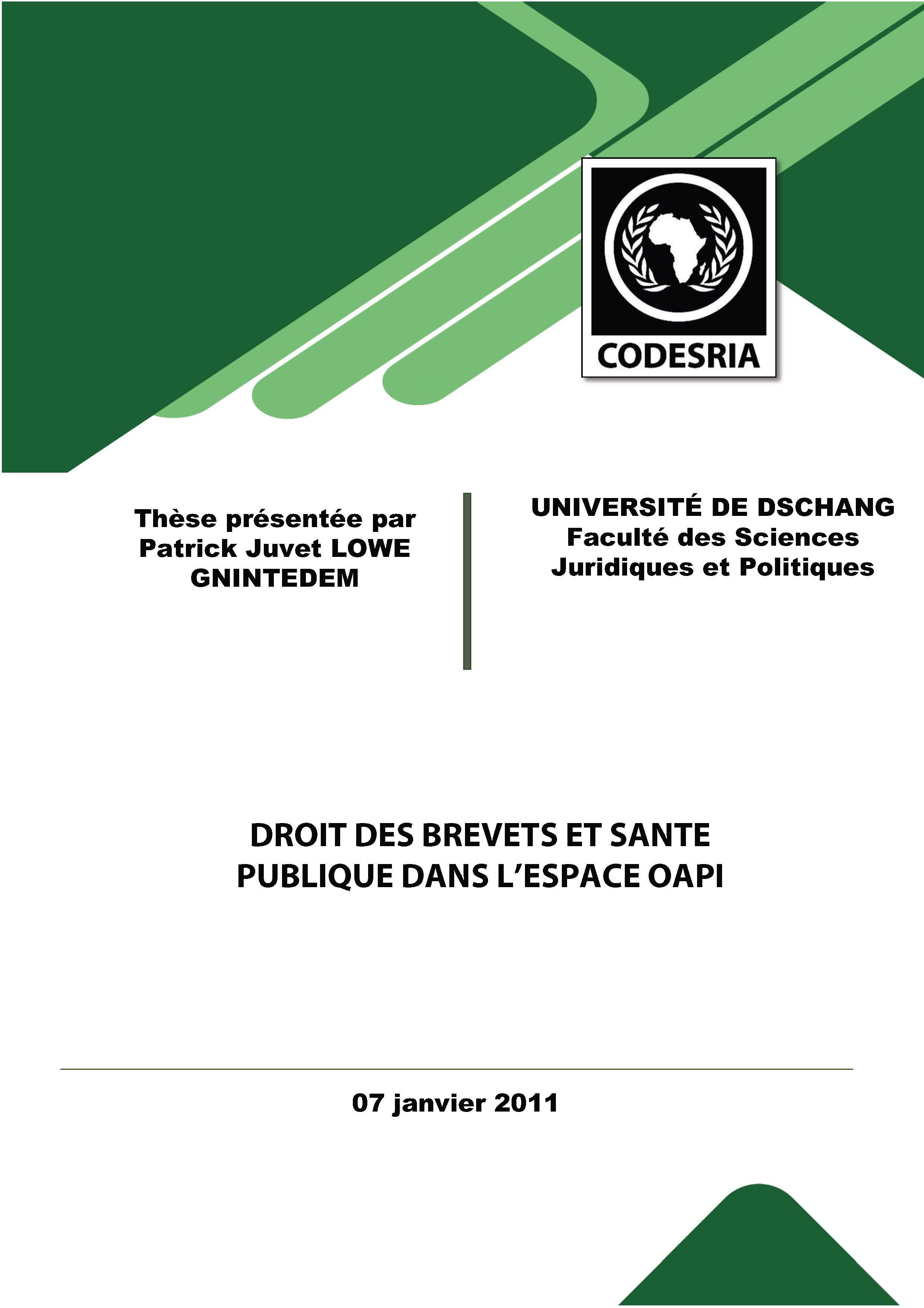DROIT DES BREVETS ET SANTE PUBLIQUE DANS L’ESPACE OAPI
Keywords:
Droit des brevets, santé publique, accès aux soins de santéSynopsis
Public health problems continue to weight down the perspectives of development of
the member States of the African Intellectual Property Organization (OAPI). To solve these
problems, it is necessary to take into account the impact of the patent system on the access to
health care of the populations, in an international context marked by the strengthening of
intellectual property rights since the adoption of the Trade-Related Intellectual Property
Rights (TRIPS) Agreement in 1994 and the amendment of the Bangui Agreement of the
OAPI in 1999. In reality, the question of the efficiency of the patent system for the protection
of the public health is still a cause for concern.
To assess this problem, the present research set up as assumption the primacy of the public
health interest on the privative rights of the inventors. Thus, the patent system rules applicable
in the OAPI zone first integrate public health considerations either by admitting the
patentability of health inventions, or by including restrictions on the privative rights of the
inventors in the interest of public health. This integration however, remains incomplete. The
patent system presents unsuitable signs, for intrinsic reasons, but also regarding the low level
of development and the specificities of the health system in the member States of the OAPI,
with the eminence of traditional medicine. It is therefore necessary to extend, in a general and
special manner, the protection of the public health beyond the existing patent system. Through
an economic analysis of the patent system, the research finally replaces the State at the centre
of the issue of the efficiency of legal norms.
Downloads
References
ABENA NGUEMA (C.), Impact des Accords de l’OMC sur l’économie du Cameroun,
négociation et mise en oeuvre, Rapport préparé pour le Ministère camerounais du
commerce et la CNUCED, 2006, document UNCTAD/DITC/TNCD/MISC/2007/1.
ABOKI (Y.), Introduction to Legal Research Methodology, Tamaza, 2001.
AMBROSELLI (C.), L’éthique médicale, 2e éd., PUF, Paris, 128 pp.
ANOUKAHA (F.) et TJOUEN (A. D.), Les procédures simplifiées de recouvrement et les
voies d’exécution en OHADA, Yaoundé, Presses Universitaires d’Afrique, 1999.
ANOUKAHA (F.) (dir.), Les grandes décisions de la jurisprudence civile camerounaise,
Coll. Les Grandes Décisions, LERDA, 2008, 644 pp.
AZÉMA (J.) et GALLOUX (J.-C.), Droit de la propriété industrielle, Dalloz, Paris, 2006, 6e
éd., 966 pp.
BASS (S. P.) et RUIZ MULLER (M.), Protéger la biodiversité : les lois nationales régissant
l’accès aux ressources génétiques en Amérique, CRDI, 2000, 140 pp.
BLAKENEY (M.), Guidebook on Enforcement of Intellectual Property Rights, Queen Mary
Intellectual Property Research Institute (QMIPRI), London, 2008, available at
http://www.delpak.cec.eu.int/WHATSNEW/Guidelines.pdf
BEAUD (M.), L’art de la thèse, éd. La découverte, 1994, 182 pp.
BENSALLAH-ALAOUI (A.), La sécurité alimentaire mondiale, L.G.D.J., 1989, 429 pp.
BERGEL (J.-L.), Le droit des biens, Coll. Que Sais-je ?, PUF, 1990, 128 pp.






